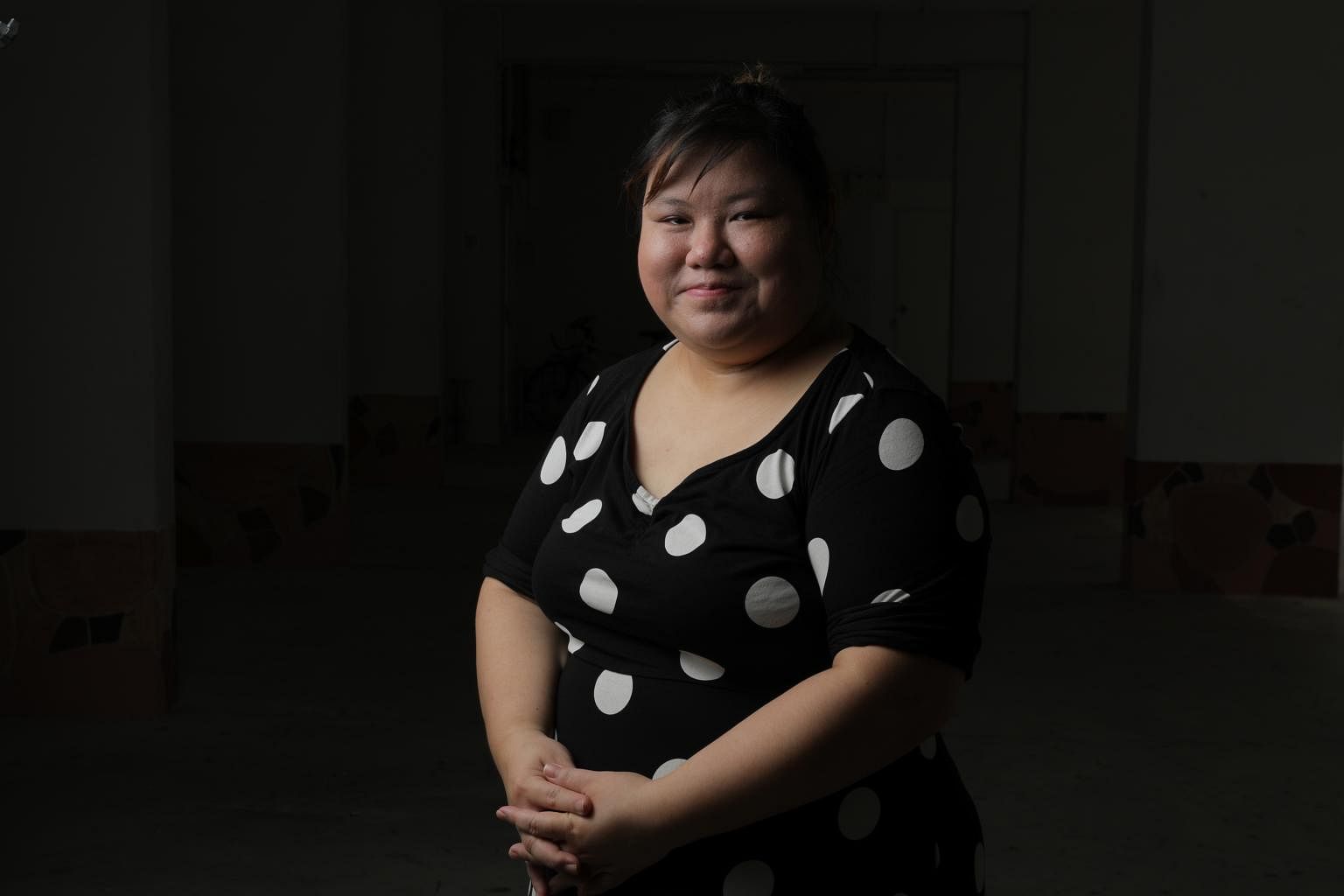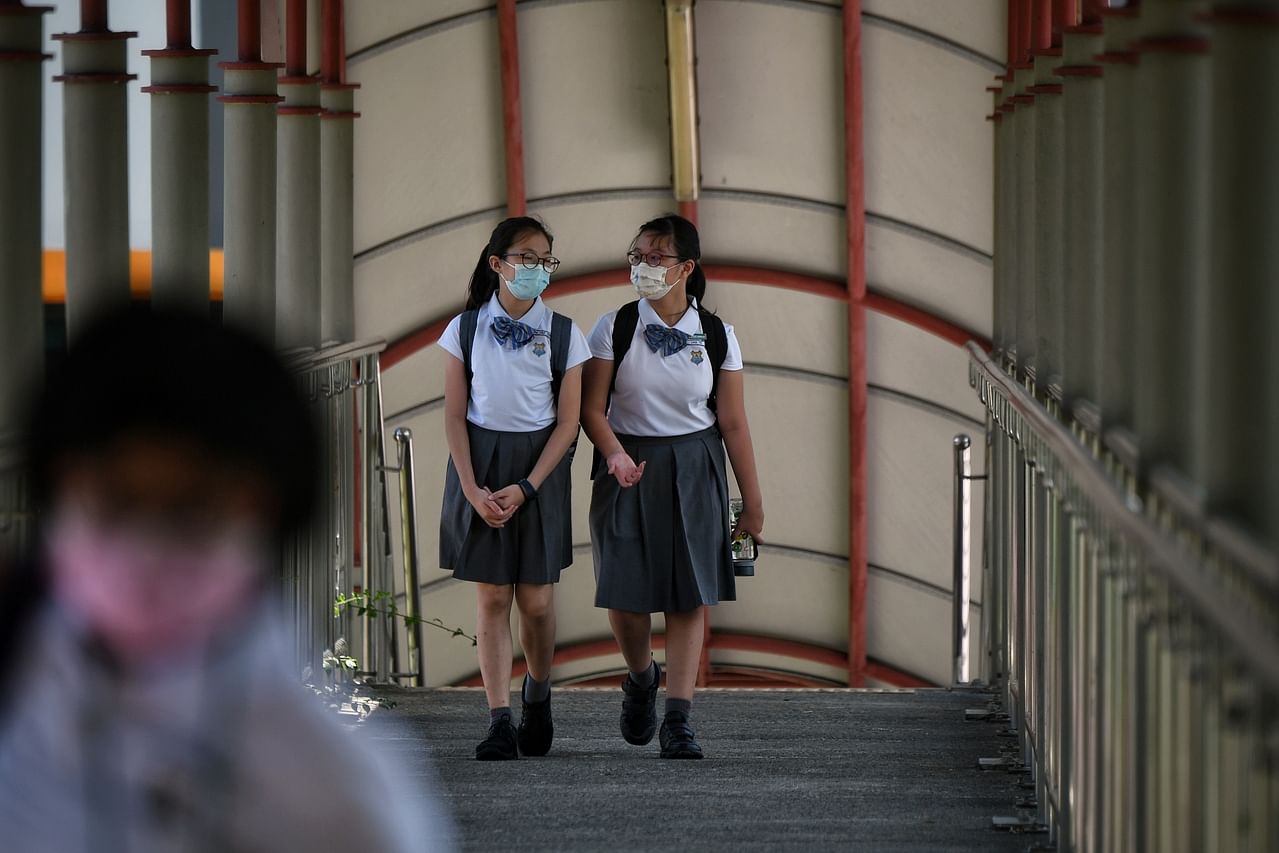About 71,600 in S'pore have psychotic disorders, says study

Ms Michelle Lai volunteers regularly, giving talks on mental health.

Timothy Goh
MAY 21, 2021
SINGAPORE - Like many others her age, Ms Michelle Lai enjoys baking, hiking, drawing and doing barre, a workout that incorporates elements of ballet, yoga and pilates.
She hangs out with friends and volunteers regularly, giving talks on mental health.
The 30-year-old is living proof of what a diagnosis, medications and therapy can do for someone with a mental health condition.
Ms Lai has a schizoaffective disorder, and up till just three years ago, used to experience things that were not there.
"When I'm unwell I hear voices, see things people can't see, smell smells that people can't smell, and feel people punching or pinching me. Sometimes, my mouth will have a bitter taste too," she told The Straits Times.
And she is not alone in her experience. Results from the 2016 Singapore Mental Health Study, released by the Institute of Mental Health (IMH) on Friday (May 21), found that one in 43 of those aged 18 and up here has had a psychotic disorder in their lifetime.
This translates to about 71,600 people.
The study was conducted on 6,126 participants, representing the population, between 2016 and 2018 in collaboration with the Ministry of Health (MOH) and Nanyang Technological University. It was funded by MOH and Temasek Foundation
It is the first nationwide study to examine the prevalence of psychotic disorders in the Singapore resident population aged 18 years and above, the factors associated with such disorders and the treatment gap for the disorders.
Psychotic disorders may involve one or more of the following:
- Delusions, which are the fixed belief in something that is not true.
- Hallucinations, which are sensations that are not real, such as seeing things that are not there.
- Disorganised thoughts, making a person's speech difficult to follow with no logical connection.
- Abnormal motor behaviour, which includes inappropriate or bizarre postures, or a complete lack of response to instructions.

The most common psychotic disorder in Singapore was schizophrenia, with about one in 116 - or 26,800 people - having been diagnosed with it at some point in their lives.
This condition comes with a wide array of symptoms, including hallucinations, delusions, disorganised behaviour, social withdrawal and attention impairment.
The study found that the average age of onset of psychotic disorders here was 23.1 years, and that those with such conditions were 4.3 times more likely to be unemployed - although the researchers could not say for sure that this was directly caused by their condition.
At least 80.4 per cent of those with such conditions had sought help for their symptoms.
Professor Chong Siow Ann, senior consultant at the Research Division and Department of Psychosis at IMH and principal investigator of the study, said that while psychotic disorders are not as common as other mental health conditions, the extent of impairment and disabilities - including death - caused by psychotic disorders can be considerably greater.
"The publication of this study is a timely reminder as we commemorate World Schizophrenia Day on May 24 that early detection and intervention can make a big difference in relieving the distress and suffering of the tens of thousands of people afflicted, and (who) will be afflicted, with these disorders," he added.
For those living with a psychotic disorder, the experience can be very distressing.
Marilyn (not her real name) was 20 years old when she began experiencing symptoms of schizoaffective disorder.
Those with this condition have symptoms of schizophrenia as well as a mood disorder, such as depression or bipolar disorder.
Now 30, the housewife told ST that her rush of thoughts used to keep her up for days.
She said: "My mind tried to link things that were not connected - it'd affect my thinking, so I couldn't speak properly, I couldn't have a proper conversation with my family.
"When I watched TV, I'd think that it was talking about me and my family, and that could mean that something bad may happen to my family members. So I got very scared and worried, and my thoughts would run wild."
Ms Lai, who is currently unemployed, and started manifesting symptoms of a psychotic disorder around the age of 18, had similar experiences in the past.
She said: "I thought that people were looking at me from the HDB block opposite, and when I went out I thought that people were pointing at me.
"I wanted to dash across the road - the voices (in my head) were saying that the cars would not hit me, and I was running away from something."
The lack of understanding of mental health conditions made it even harder to cope, said Ms Lai.
"When I was having symptoms of depression, I didn't know what was going on. People thought I had an attitude problem… some teachers even said I was wasting space in the school," she said, adding that she did not even know she had a mental health condition at that time.
Living a normal life is possible, with help
Dr Charmaine Tang, chief of the Department of Psychosis at IMH, said early intervention is key to helping those with psychotic disorders cope with their conditions."While schizophrenia and psychotic disorders are serious and chronic conditions, medications and psychosocial therapy can help people manage these conditions, recover and lead normal, fulfilling lives," she said.
She added that when a person is more stable, individual and family therapy, social skills training, vocational rehabilitation and supported employment, as well as the support of family and friends, play a big role too.
Ms Lai now takes a monthly injection to manage her symptoms, and has been largely symptom-free for the last three to four years apart from periodic bouts of depression, which she is able to manage on her own.
Up till recently she worked in the special needs sector and as a peer support specialist, drawing on her own experiences to support those with mental health conditions.
Marilyn experienced a total of three psychotic breaks from 2010 till now, and was admitted to IMH for a short period of time on each occasion.
But with the help of medical support, she has managed to lead a relatively normal life, working as an accountant for seven years, getting married in 2017, and recently becoming a mother to a one-year-old child.
'We're not crazy people'
Ms Lai said it has been heartening to see a general increase in mental health awareness in Singapore in recent years.However, both she and Marilyn noted that there are still misconceptions surrounding psychotic disorders.
Ms Lai said that people tend to think someone with schizoaffective disorder has multiple personalities - which is incorrect - or is dangerous.
"From my experience, people with this condition are more likely to be harmed than harm people," she said, adding that she hopes to see greater efforts in mental health education and more opportunities for people with mental health issues to integrate into society.
Such harm may take the form of discrimination when applying for jobs or to schools, leading them to miss out on opportunities in life.
This in turn perpetuates stigma about those with mental health conditions, said Ms Lai.
Marilyn said: "A lot of times, people think that those with this condition cannot be cured, and it's the end for them. They also think it means they have to stay in hospital on a long-term basis."
But she added that her experience shows this is not the case.
She said: "We can lead a normal life as well with proper medication and intervention.
"Stigma against those with mental health conditions still exists in Singapore. I hope that people here can learn more about these conditions and reduce this stigma, because we are able to lead normal lives - we're not crazy people."




























